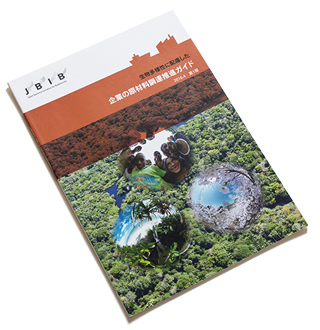Working Group for
Sustainable Supply Chains

The sourcing of raw ingredients and materials can sometimes lead to destruction of ecosystems and biodiversity through activities such as mining and the clearing of land for farming purposes.
The JBIB Responsible Procurement Working Group had led the promotion of responsible sourcing of raw materials in Japan through initiatives including the preparation of the Guide for Promotion of Raw Material Procurement for Business in Consideration of Biodiversity.

In addition to such matters concerning biodiversity, it has recently been pointed out that the production of raw materials is related to global-scale environmental issues such as deforestation, water resources and climate change, and that there are violations of human rights at the sites of production.
On the other hand, as these are all interrelated, there are expectations that the improvement of one issue would have favorable impacts on other issues. Namely, it is anticipated that the realization of sustainable supply chains will contribute to the achievement of not only SDGs 14 and 15 for conservation of ecosystems below water and on land, and SDG 12: Responsible Consumption and Production, but other goals such as SDG 6: Clean Water and Sanitation, SDG 8: Decent Work and Economic Growth, and SDG 13: Climate Action.
With the aim of finding solutions to related issues and building a sustainable supply chain, the group’s range of activities was broadened and reorganized, and it was renamed the Working Group for Study of Sustainable Supply Chains.
Activities
The Sustainable Supply Chains Working Group looks into the agendas of international organizations, NGOs and other organizations, and through discussions with NGOs and experts, sorts out the various issues that arise on the supply chain and seeks to identify the optimal supply chain structure.
The group is also studying what actions companies need to take by referring to the good practices of leading companies within and outside Japan.
In the first phase of activities, the outcomes of such studies has been compiled in a report and shared among JBIB member companies. As the second phase, the group is now preparing to produce industry-guiding outcomes such as guidelines on securing supply chain traceability and due diligence.


Participant Companies
Ajinomoto Co., Inc.
FUJIFILM Holdings Corporation
Japanese Consumers’ Co-operative Union
Sumitomo Forestry Co., Ltd.